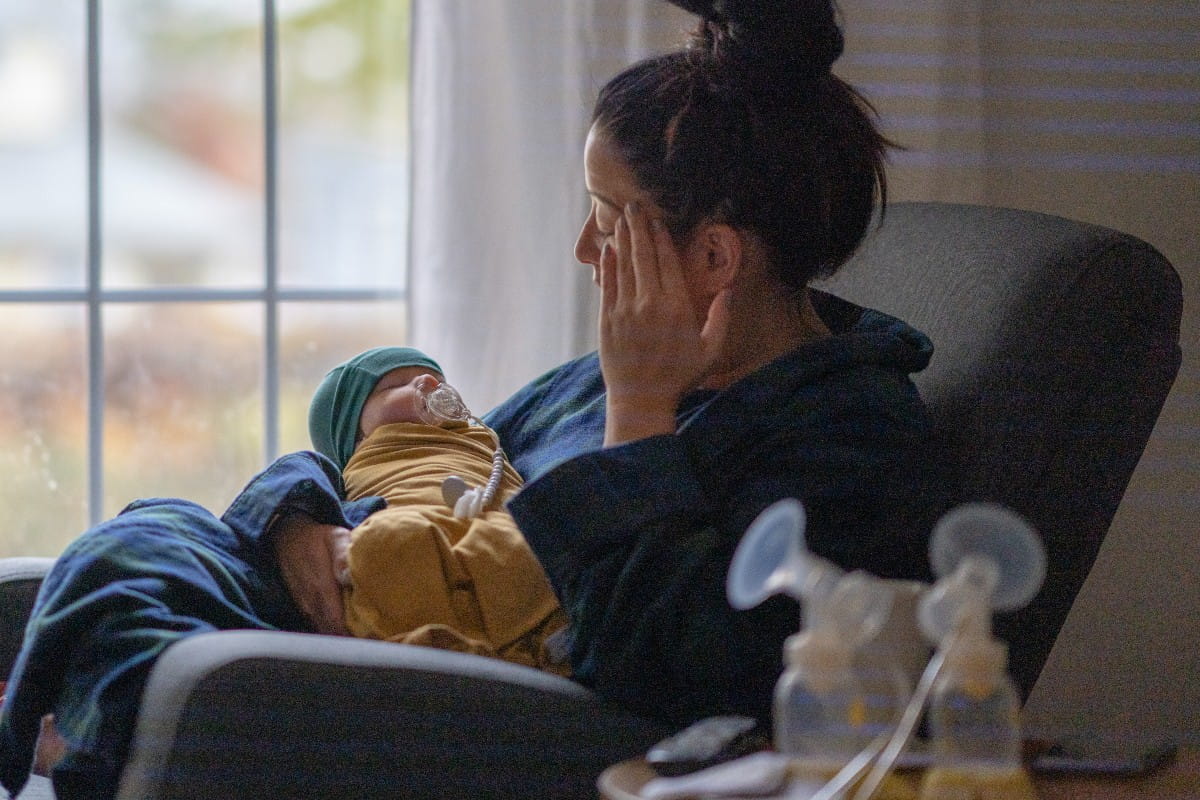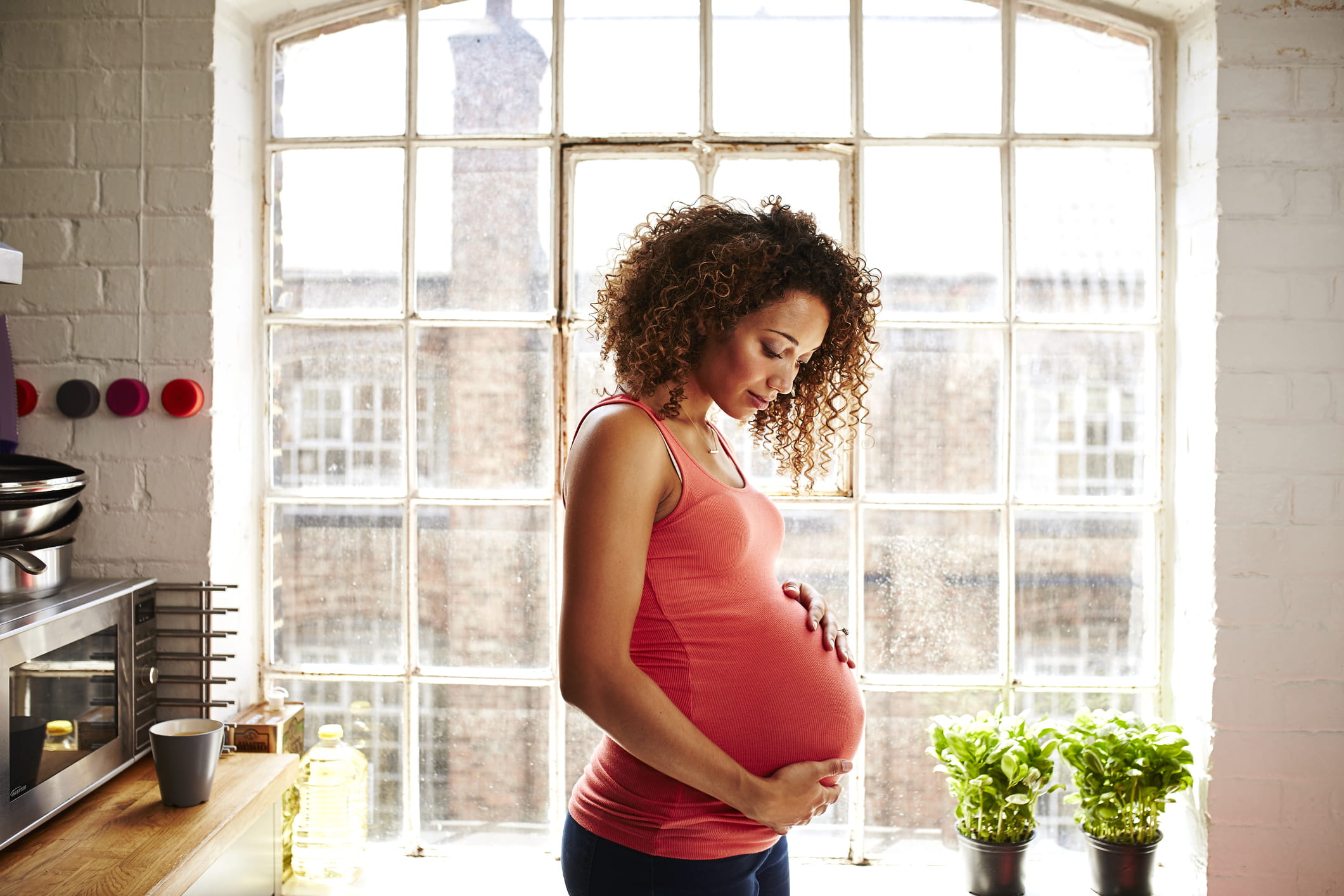Postpartum depression lasts longer than the baby blues
After delivery, around 80% of new moms experience sadness, anxiety, worry and often long bouts of crying. This emotional roller coaster is known as the baby blues and typically lasts for a few days or as long as two weeks. When feelings persist after several weeks, it could be a sign of a more severe problem.
“It’s normal to experience some mood changes after delivery. But, crying and feelings of sadness and worry that continue beyond two weeks could be a sign of postpartum depression,” says Ms. Sharp.Don’t let postpartum depression symptoms go unnoticed
Postpartum depression symptoms can be mild-to-severe and they may appear immediately or gradually over the first year after having a baby. Sometimes, symptoms hide behind the lifestyle changes that come with a new baby, like getting less sleep.
Symptoms of postpartum depression may include:
- Prolonged crying
- Low energy
- Feeling sad
- Thoughts of hurting yourself or your baby
- Anxiety
- Withdrawing from family and friends
- Feeling worthless or guilty
- Losing interest in activities
- Having aches and pains that don’t go away
- Having trouble focusing and making decisions
If you’ve had any of these symptoms, even if you’re not sure they’re a problem, it’s important to let your health care provider know right away. “Many women feel guilty or ashamed of how they’re feeling. But these feelings are completely normal. Postpartum depression is not your fault, and you are not a bad mom for feeling this way. We can help,” says Ms. Sharp.
Diagnosing postpartum depression is more than just recognizing symptoms. Your health care provider can assess the severity of your symptoms and how they impact your ability to care for yourself and your baby. Some changes are expected after the birth of a baby; it’s how you adjust to them that your health care provider wants to understand. Although it is rare, a specific form of postpartum depression called postpartum psychosis requires immediate medical attention to prevent harm to both mom and baby.
Postpartum depression has many causes
It’s not entirely clear what causes postpartum depression. Researchers think it’s the result of several physical and social changes that occur after delivery, including:
- Hormonal shifts
- Lack of sleep
- Changes to relationships
- Body changes
- Increased stress
- Genetics
Most postpartum depression gets better with treatment
There is no one-size-fits-all treatment for postpartum depression. Treatment may include a mix of therapy, medication and social support. The first step in treatment is to talk with your health care provider. “We have so many great tools to help new parents and other family members dealing with postpartum depression, including medications and therapy— there is help so you can start to feel better,” says Ms. Sharp.
While getting treatment for postpartum depression, there are some things you can do at home to help you and your baby:
- Have a partner, friend or family member help you take care of your baby
- Rest as much as you can, and try to sleep when your baby sleeps
- Talk about your feelings with other mothers
- Join a support group
- Make time to go out and visit friends
Untreated postpartum depression can affect you and your baby. Not getting help can make it difficult to focus on your and your baby’s needs. In addition, long-term, untreated postpartum depression can result in children experiencing learning and behavior problems. So it’s important to get help as soon as you notice any symptoms of postpartum depression.
Start feeling better today
Don’t wait to get help for postpartum depression . Talk to your health care provider about what you are feeling. Call to make an appointment today.
If you have thoughts of hurting yourself or your baby, call 911 or go to the nearest emergency room for help.



